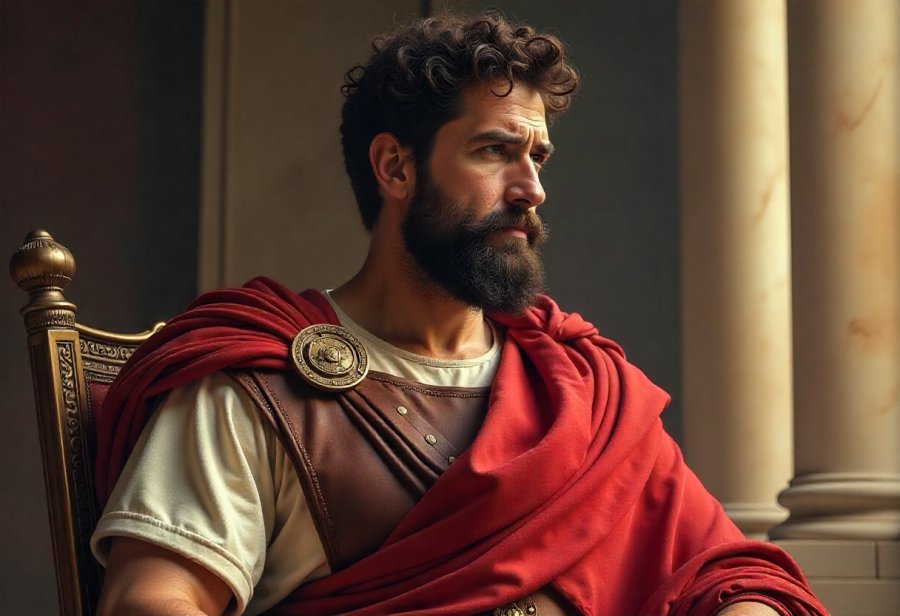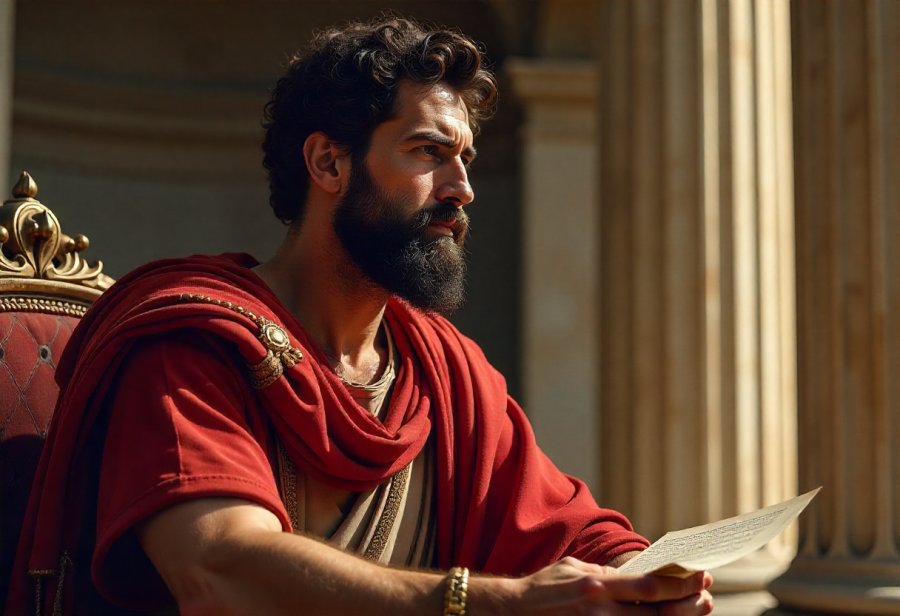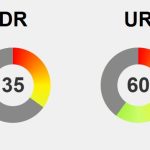What if true strength isn’t measured by external conquests or power, but by inner discipline and moral resilience? Marcus Aurelius exemplifies this paradox: as a Roman emperor facing wars, plagues, and political turmoil, he found his greatest influence not in military might but in mastering himself through Stoic philosophy. His life challenges us to rethink leadership and personal growth—suggesting that lasting power stems from patience, humility, and self-control rather than outward success. In an age overwhelmed by distractions and rapid change, cultivating inner discipline offers a steady anchor, fostering resilience that withstands life’s chaos. Practices like mindfulness, journaling, and setting small goals help develop this quiet strength, making us more authentic and effective. Could embracing this internal mastery be the ultimate legacy? Marcus’s example invites us to build an inner empire—one rooted in virtue—that outshines fleeting external achievements and endures through life’s storms.

Unveiling Inner Strength: The Hidden Power of Self-Discipline
Throughout history, strength has often been associated with visible displays—armies marching into battle, political victories, or the expansion of empires. These external signs are easy to recognize and measure, making them the most celebrated forms of power. But what if the deepest, most lasting strength isn’t in these outward achievements? What if true power resides quietly within us—manifested through self-control, resilience, and moral clarity? This idea has persisted through the ages, yet few figures have embodied it as fully as Marcus Aurelius. As a Roman emperor and Stoic philosopher, he believed that mastering oneself was the highest form of strength, inviting us to rethink what it truly means to be powerful.
When we picture strength, it’s natural to think of force or success—conquests, armies, or political influence. These are the visible markers of power that society admires. But they don’t tell the whole story. Real strength is about the inner qualities that sustain us through hardship—patience, resilience, and integrity. Many great leaders understood this, cultivating virtues like self-control and wisdom because they recognized that lasting influence comes from within. Moving the focus from external dominance to internal mastery challenges conventional ideas of leadership—less about control, more about self-awareness.
Marcus Aurelius’s life exemplifies this shift. Despite commanding a vast empire and facing relentless external threats—wars, plagues, political unrest—he remained committed to inner discipline. His writings, especially in Meditations, reveal a man who believed that true strength came from controlling his thoughts and emotions. During times of crisis, he turned inward, using philosophy as a compass to navigate chaos. His ability to remain calm and morally grounded under pressure reflected a deep conviction: that the most enduring strength is rooted in self-mastery.
This perspective isn’t just an ancient ideal; it’s highly relevant today. In a world overwhelmed by distractions and rapid change, mental resilience and self-control are more vital than ever. Leaders and individuals alike benefit from cultivating inner discipline through practices like reflection, mindfulness, and setting small daily goals. These habits build a steady foundation of inner strength that can withstand external upheavals. Marcus Aurelius’s example reminds us that genuine power isn’t just about external success—it’s about the quiet strength we develop within, which can become the greatest empire we ever build.
Marcus Aurelius in Context: Navigating Crisis with Inner Resilience
Marcus Aurelius’s reign as Roman emperor from 161 to 180 AD was marked by constant external threats and internal challenges that tested his leadership and resilience. The northern borders, especially along the Danube frontier, faced repeated invasions by Germanic tribes, demanding not only military strategy but also mental fortitude. These conflicts weren’t just territorial disputes—they required unwavering focus and calm under pressure. Meanwhile, a devastating plague swept through Rome and its provinces, claiming countless lives and shaking the very foundation of society. These crises forced Marcus to rely heavily on his inner discipline, turning to Stoic philosophy as a steadying force amid chaos.
Despite the turmoil outside, Marcus’s commitment to Stoic principles provided him with a moral compass. His writings in Meditations reveal a leader dedicated to self-control and virtue, viewing external events as opportunities to practice endurance and moral clarity. He often reflected on how to maintain calm and moral integrity, even in the face of adversity, using philosophy as a guide. This internal focus did not weaken his leadership; instead, it strengthened his ability to govern with patience and moral resolve during turbulent times.
Born in 121 AD, Marcus’s early education in rhetoric and philosophy laid the foundation for his Stoic outlook. His rise to power in 161 was accompanied by both military campaigns and profound personal reflection. Throughout his reign, he saw external conflicts not only as military struggles but as opportunities to cultivate resilience. His response to these challenges demonstrated that true strength comes from within—controlling emotions like anger and frustration while making wise decisions. Marcus understood that inner discipline was essential to navigating both external threats and internal doubts.
The outbreak of the plague further tested his resolve. As suffering and loss spread across the empire, Marcus chose compassion and calmness over despair. He accepted suffering as part of life’s natural order, emphasizing the importance of focusing on what can be controlled and letting go of attachment to external outcomes. This attitude enabled him to lead with clarity and moral authority, even amid widespread suffering. His embrace of Stoic virtues—patience, humility, and moral integrity—shaped his approach to leadership during this dark period.
Marcus Aurelius exemplified how inner resilience can serve as a shield against external chaos. His ability to remain calm and reflective under pressure highlights that true strength resides in self-mastery. His life remains a powerful reminder that internal discipline, cultivated through consistent effort, can sustain leadership and influence far beyond fleeting external achievements. In a time of relentless upheaval, Marcus demonstrated that the greatest empire one can build is the mastery of oneself—a lesson that continues to resonate today.

Inner Discipline Today: Cultivating Resilience in a Rapid World
Today, the idea of inner discipline remains as vital as ever, especially when it comes to leading ourselves and others effectively. In a world that’s constantly moving—full of distractions, information overload, and rapid change—mental resilience and self-control aren’t just virtues; they’re essentials. Leaders who cultivate emotional intelligence and self-awareness tend to navigate challenges with greater ease and inspire trust through authenticity. Practices like mindfulness, meditation, and journaling help develop this inner strength, allowing us to stay grounded when setbacks arise or stress levels spike.
You can see this shift clearly in contemporary figures admired for their calm and resilience. Leaders like Jacinda Ardern, known for her empathetic response during crises, or Satya Nadella, who transformed Microsoft by emphasizing growth and emotional intelligence, exemplify the power of inner discipline. Their ability to remain composed under pressure demonstrates that genuine strength isn’t about control or authority but about resilience and moral clarity. This inner resilience often has a more lasting impact than external displays of power or dominance.
Organizations are increasingly recognizing this truth. Resilience training, emotional awareness programs, and mindfulness initiatives are now common in leadership development. Companies see that fostering self-awareness and emotional regulation leads to better decision-making and healthier workplaces. Developing inner discipline becomes a strategic asset—something that helps individuals adapt swiftly to change, manage uncertainty, and stay aligned with core values amid chaos. It’s a shift from reactive to proactive leadership rooted in self-mastery.
Technology also plays a role in supporting inner discipline. Meditation apps, resilience workshops, and mental health resources make it easier to integrate these habits into everyday routines. As societal attitudes evolve, valuing authenticity and mental well-being, more people actively seek ways to strengthen their inner selves. This environment encourages us to see self-mastery not as a luxury but as a necessity—an integral part of personal and professional growth.
However, building inner discipline isn’t always straightforward. The constant barrage of notifications, societal pressures for quick results, and superficial success can tempt us to neglect the slow, deliberate work of resilience. Many struggle to maintain mindfulness or reflect amid daily chaos, often relying on external symbols of power instead of cultivating inner strength. Overcoming these hurdles requires intentional effort and an understanding that resilience and self-control develop gradually through consistent practice.
Fostering inner discipline today means embracing a mindset that values long-term strength over fleeting wins. It’s about making small, deliberate efforts—resisting impulsive reactions, practicing patience, and reflecting on our reactions—that compound into a resilient, centered self. This ongoing journey isn’t about perfection but persistence. Each moment of choosing calm over chaos, reflection over reaction, adds to a foundation of inner strength that can support us through any storm.
By prioritizing inner discipline, we shift focus from external validation to cultivating genuine mastery over ourselves. This approach makes our actions more authentic and impactful. Leaders and individuals who invest in their inner virtues create influence that endures beyond immediate successes. Their quiet confidence and moral clarity become a legacy far more powerful than external achievements, proving that true strength is rooted in the steady, deliberate mastery of the inner life.
Developing this inner discipline is also supported by leveraging various resources and tools designed for mental resilience. For those interested in deepening their understanding and practice, exploring effective techniques through comprehensive guides can be highly beneficial. One such resource is the article on Inner Discipline and Resilience, which offers practical insights and strategies to strengthen your mental fortitude in today’s fast-paced world.
Tools for Inner Mastery: Strategies to Build and Sustain Strength
Building inner strength and maintaining discipline is an ongoing journey, but it becomes more manageable with simple, consistent habits. Meditation stands out as one of the most effective tools—just a few minutes each day focusing on your breath can quiet the mind and increase self-awareness. Over time, this practice helps you observe your thoughts without immediately reacting, cultivating clarity and emotional regulation that serve you well during stressful moments.
Journaling complements meditation by providing a space to reflect on your thoughts, emotions, and reactions. Regular writing helps identify patterns and triggers, giving you valuable insight into how you respond under pressure. Tracking your progress reinforces your commitment to growth and gradually strengthens your inner resolve, making it easier to stay on course over time.
Setting small, achievable goals plays a crucial role. Instead of attempting drastic changes overnight, focus on incremental improvements—resisting temptations, practicing patience, or managing stress in daily situations. These small wins build confidence and create momentum. Consistency in these efforts matters more than intensity; showing up every day with intention gradually cultivates resilience and self-control.
Practicing self-control in everyday moments is a straightforward way to reinforce your inner discipline. Whether resisting the urge to check your phone constantly or managing reactions during challenging conversations, these small choices strengthen your mental toughness. Over time, they become habits, making it easier to stay calm and centered when faced with larger difficulties. This continuous effort deepens your capacity for patience and resilience.
Seeking guidance through philosophy, psychology, or coaching can further support your growth. Reading Stoic texts or resilience strategies provides practical insights, while working with a mentor or coach offers accountability and personalized advice. External perspectives help you stay focused on your goals and refine your techniques, ensuring steady progress toward mastering your inner world.
Creative methods like visualization also enhance your inner work. Imagining yourself handling difficult situations with calm and embodying virtues such as patience and resilience prepares your mind for real-life challenges. Combining visualization with journaling makes your inner discipline more engaging and personalized, turning self-mastery into an active, ongoing practice.
Fostering inner strength isn’t about perfection but persistence. Each moment of resisting impulsive reactions, practicing patience, or reflecting on your experiences adds to a resilient, centered self. These small, deliberate efforts compound over time, building a solid foundation of inner discipline that supports you through life’s inevitable ups and downs. The more consistently you practice, the deeper your inner resilience becomes, shaping a stronger, more balanced version of yourself.

The Enduring Power of Inner Discipline: A Legacy of True Strength
Inner discipline stands as the true foundation of genuine strength, whether for rulers or anyone striving to live with integrity. It’s the quiet, steady force that sustains us through life’s inevitable hardships, guiding our choices and helping us stay morally grounded when external chaos surrounds us. Marcus Aurelius exemplified this perfectly—his leadership wasn’t solely defined by military victories or political power, but by his mastery over himself. His writings, especially in Meditations, remind us that real authority comes from within, from cultivating virtues like patience, humility, and self-control.
In a world obsessed with external success and quick wins, recognizing the power of inner discipline offers a more lasting and authentic form of influence. When we nurture resilience and self-awareness, we become better equipped to handle setbacks and uncertainties. This strength isn’t about suppressing emotions or pretending everything is fine; it’s about understanding ourselves deeply and responding thoughtfully rather than impulsively. Developing this inner core shifts our focus from fleeting external achievements to building a stable, moral foundation that can withstand any storm.
Great leaders from history demonstrate that true power isn’t measured by armies or conquests but by their ability to govern themselves. Their capacity to control desires, manage emotions, and act with integrity creates a legacy that endures beyond the immediate moment. Inner discipline transforms transient acts of strength into enduring virtues, anchoring us to principles that guide us through even the darkest times. It’s that calm confidence and moral clarity that become a lasting influence—more meaningful than fleeting external accomplishments.
For individuals today, embracing inner discipline means turning every challenge into an opportunity for growth. It’s about making small, consistent efforts—resisting temptations, practicing patience, and reflecting on our reactions—that, over time, forge a resilient, centered self. This journey isn’t about perfection but persistence. Each moment of choosing calm over chaos, reflection over reaction, adds to a solid foundation of inner strength that supports us through life’s storms. The more we commit to this inner work, the more resilient and authentic we become.
By viewing inner discipline as the true source of strength, we shift from chasing external validation to cultivating genuine mastery over ourselves. This perspective doesn’t diminish action; instead, it makes our actions more authentic and impactful. Leaders and individuals who prioritize inner virtues create ripples of influence that last far beyond immediate successes. Their quiet, deliberate mastery becomes a legacy—an enduring power rooted in calm, moral clarity that outshines external conquests forever.





